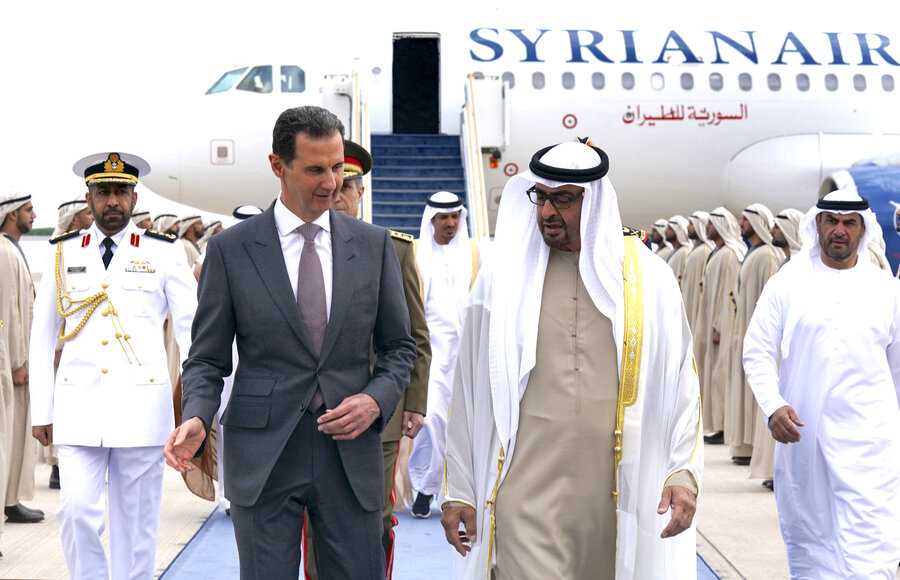For two of the world’s pariahs, more honey than vinegar
Loading...
For the second time in less than a year, a country that is a global pariah has reemerged from the shadows. Arab leaders yesterday accepted Syrian President Bashar al-Assad back into their regional alliance more than a decade after shunning him for alleged war crimes – including the use of chemical weapons – against his own people.
The decision by the Arab League follows a similar thaw for Venezuela. Latin American leaders and the Biden administration have begun cautiously drawing President Nicolás Maduro into the international fold after years of isolation.
These moves toward engagement with Syria and Venezuela bring up challenging questions on how to help people living under repressive regimes achieve their preferred style of governance. As the Gulf nation of Qatar argued yesterday – against the league’s decision – readmitting Mr. Assad should first require “a change on the ground that achieves the aspirations of the Syrian people.”
Yet at another level, these two cases reflect how countries in the Middle East and Latin America are seeking to reset the terms of governance at a time when great-power rivalries are exacerbating problems in poorer countries.
“Securing a sustainable place in the emerging multipolar world order is a matter of survival for Arab states,” wrote Malik al-Abdeh, a Syria expert, in a recent essay for the Atlantic Council. The Middle East, he argues, offers an opportunity to rethink influence “as a competition for the best ideas and offers that can create new qualities of alliances [that] ... encompass a large degree of Western values and norms.”
The crises in Syria and Venezuela have unfolded in parallel time frames. Syria descended into civil war during the Arab uprisings of 2011. Within a year, Mr. Assad’s regional peers ostracized the Syrian president amid mounting evidence of gross human rights violations. The conflict drew in five foreign militaries and displaced 6.8 million people. Some 90% of Syrians live below the poverty line.
Venezuela saw economic collapse amid falling oil prices in 2016. Half of Venezuelans live in poverty. More than 7 million have fled. Mr. Maduro has maintained his grip on power through rampant corruption, patronage networks, and crackdowns on dissent.
To force both leaders from power, the United States and other Western countries have applied increasingly stiff economic sanctions. Yet while U.S. administrations came and went, Mr. Assad and Mr. Maduro stayed. In recent years, Syria’s neighbors have cautiously sought economic ties with it. After Russia invaded Ukraine, the Biden administration, seeking new sources of oil, offered an exchange: a modest resumption of oil purchases if Mr. Maduro engaged in talks to restore democracy.
Venezuela has gained a local champion. Colombia’s new president, Gustavo Petro, has made engaging his neighbor a key part of his pursuit of peace and stability. Democracy in Venezuela must “evolve with history,” he says.
The world is trying a new strategy with Syria and Venezuela: patient confidence-building. So far punitive coercion has not worked.







